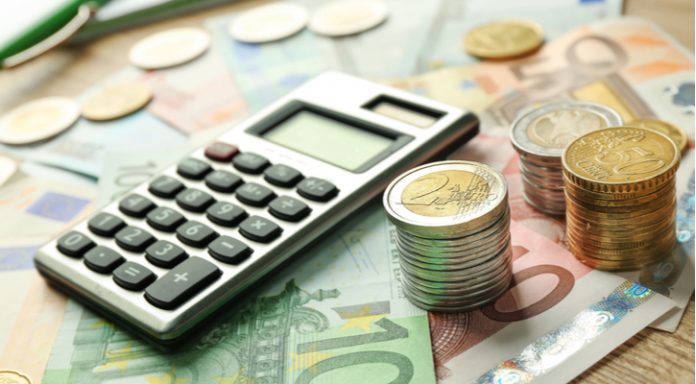The pound rallied strongly versus the euro in early trade on Friday, before erasing all the gains by the end of the day. The pound rallied to a high of €1.1487, falling back to €1.1440 ending 0.17% lower on the day.
| What do these figures mean? |
|---|
|
When measuring the value of a pair of currencies, one set equals 1 unit and the other shows the current equivalent. As the market moves, the amount will vary from minute to minute. For example, it could be written: 1 GBP = 1.13990 EUR Here, £1 is equivalent to approximately €1.14. This specifically measures the pound’s worth against the euro. If the euro amount increases in this pairing, it’s positive for the pound. Or, if you were looking at it the other way around: 1 EUR = 0.87271 GBP In this example, €1 is equivalent to approximately £0.87. This measures the euro’s worth versus the British pound. If the sterling number gets larger, it’s good news for the euro. |
The outlook for the pound improved considerably across the previous week On Friday, leaders at the EU summit voted in favour to the Brexit transition deal which had been announced at the beginning of last week. The transition deal has laid the foundations to a smoother Brexit for the UK as it separates from the EU, providing more clarity to businesses. This should remove some of the uncertainties surrounding Brexit, helping UK business through the changes. Anything which is supportive of business and therefore the economy post Brexit is beneficial for the pound.
| Why is a “soft” Brexit better for sterling than a “hard” Brexit? |
|---|
| A soft Brexit implies anything less than UK’s complete withdrawal from the EU. For example, it could mean the UK retains some form of membership to the European Union single market in exchange for some free movement of people, i.e. immigration. This is considered more positive than a “hard” Brexit, which is a full severance from the EU. The reason “soft” is considered more pound-friendly is because the economic impact would be lower. If there is less negative impact on the economy, foreign investors will continue to invest in the UK. As investment requires local currency, this increased demand for the pound then boosts its value. |
Growing optimism among investors that the Bank of England is looking to raise interest rates in May is also supporting sterling. The central bank was more hawkish than investors were expecting last week, with 2 of the 7 policy makers voting to increase rates immediately. A Brexit transition deal in place, and wages growth set to be above inflation is giving the central bank greater flexibility towards its monetary policy.
| Why do raised interest rates boost a currency’s value? |
|---|
| Interest rates are key to understanding exchange rate movements. Those who have large sums of money to invest want the highest return on their investments. Higher interest rate environments tend to offer higher yields. So, if the interest rate or at least the interest rate expectation of a country is relatively higher compared to another, then it attracts more foreign capital investment. Large corporations and investors need local currency to invest. More local currency used then boosts the demand of that currency, pushing the value higher. |
After the pivotal week last week for the pound, this week is much quieter. The UK economic calendar is particularly light on this holiday shortened week.
Euro Rallies On Trump Tariff Exemption
Demand for the euro increased dramatically late on Friday, following news that President Trump had granted the EU an exemption from the recently introduced steel and aluminium tariffs. US trade representative Robert Lighthizer informed a Senate panel that US President Trump had decided to freeze the import duties pending further discussions. This puts the EU in line with countries such as Argentina, Australia, Brazil, Canada, Mexico and South Korea; exempt from the tariffs.
This is very good news for the eurozone and the euro, where markets had been under pressure all week on fears that the EU would not be able to reach an agreement. The tariffs would have been damaging for the eurozone economy. News of the exemption boosted the euro.
The week starts off quietly for the euro with no major releases on the economic calendar. Attention will shift quickly to Tuesday’s consumer sentiment index.
|
This article was initially published on TransferWise.com from the same author. The content at Currency Live is the sole opinion of the authors and in no way reflects the views of TransferWise Inc. |





